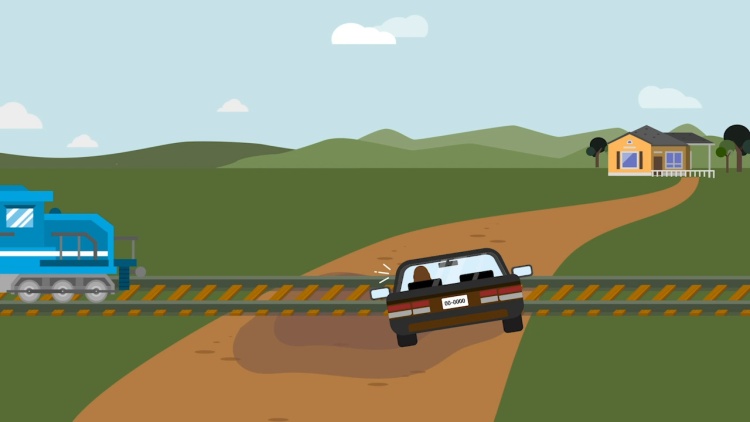Robb v. Pennsylvania Railroad Co.
Delaware Supreme Court
210 A.2d 709 (1965)
- Written by Craig Conway, LLM
Facts
A private lane leading to the home of Dixie Robb (plaintiff) was intersected by a railroad right-of-way leased to the Pennsylvania Railroad Company (Railroad) (defendant). As Robb was driving her vehicle up the lane toward her home, her car stalled in a one-foot deep rut that the Railroad had negligently allowed to form at the crossing. Despite trying for several minutes to move the car out of the rut, Robb was unable to do so. Around that time a train approached Robb’s vehicle. With only seconds to spare Robb jumped from the stalled car and ran from the scene. The train collided with Robb’s car, demolishing it. Robb stood within a few feet of the railroad track when the collision occurred and was speckled with soot and dirt in the aftermath, but she did not sustain any physical injuries. However, Robb was greatly frightened and emotionally disturbed by the event, which subsequently manifested in shock to her nervous system and physical injuries. Robb filed suit against the Railroad to recover damages for her emotional distress. The Railroad moved for summary judgment, arguing that Robb could not recover because she was not physically impacted or injured in the collision. The trial court agreed and granted the Railroad’s motion. Robb appealed.
Rule of Law
Issue
Holding and Reasoning (Herrmann, J.)
What to do next…
Here's why 904,000 law students have relied on our case briefs:
- Written by law professors and practitioners, not other law students. 47,100 briefs, keyed to 995 casebooks. Top-notch customer support.
- The right amount of information, includes the facts, issues, rule of law, holding and reasoning, and any concurrences and dissents.
- Access in your classes, works on your mobile and tablet. Massive library of related video lessons and high quality multiple-choice questions.
- Easy to use, uniform format for every case brief. Written in plain English, not in legalese. Our briefs summarize and simplify; they don’t just repeat the court’s language.





